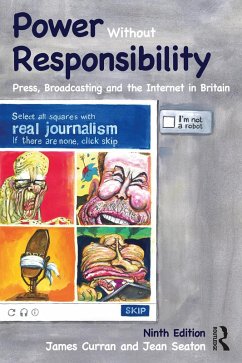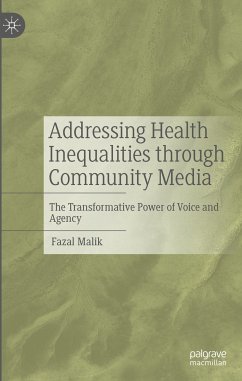
Radio Critics and Popular Culture (eBook, PDF)
A History of British Radio Criticism
Versandkostenfrei!
Sofort per Download lieferbar
96,95 €
inkl. MwSt.
Weitere Ausgaben:

PAYBACK Punkte
48 °P sammeln!
Radio still remains an important form of media, with millions listening to it daily. It has been reborn for the digital era, and is an area where there is great interest in its development, role and form. Attempting to fill the gap in research on British radio criticism, this volume explores the development and role of radio criticism in the discourse around radio in Britain from its birth in the 1920s up to present day. Using a historical approach to explore how, as radio emerged, the press provided coverage which helped shape and reflect radio's position in popular culture, Paul Rixon delive...
Radio still remains an important form of media, with millions listening to it daily. It has been reborn for the digital era, and is an area where there is great interest in its development, role and form. Attempting to fill the gap in research on British radio criticism, this volume explores the development and role of radio criticism in the discourse around radio in Britain from its birth in the 1920s up to present day. Using a historical approach to explore how, as radio emerged, the press provided coverage which helped shape and reflect radio's position in popular culture, Paul Rixon delivers an interesting and engaging exploration that provides a cultural perspective on radio, with a specific focus on newspaper criticism. Radio Critics and Popular Culture is an innovative and original addition to existing research and will be invaluable for those interested in the way that British radio has evolved.
Dieser Download kann aus rechtlichen Gründen nur mit Rechnungsadresse in A, B, BG, CY, CZ, D, DK, EW, E, FIN, F, GR, HR, H, IRL, I, LT, L, LR, M, NL, PL, P, R, S, SLO, SK ausgeliefert werden.












